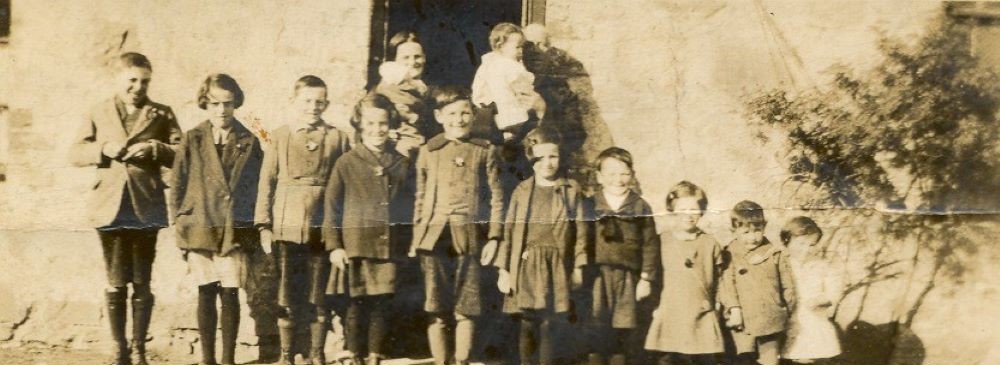
Our Local Studies Centre can be found in Oldmeldrum and is open for family history research. Get in touch with our informative staff who provide assistance as below. We can also offer a short online session to discuss any enquiries. An email with the link to the online meeting will be sent out. Email local.studies@aberdeenshire.gov.uk
You can book an appointment to research family history at the Local Studies Centre in Oldmeldrum. This means that we will have resources ready for your arrival.
If you’re unable to visit us to carry out your own research, we can also undertake family history research on your behalf. The first half hour is free and thereafter charged at £25 per hour. Any further research and charges are agreed in advance and payment can be made by online payment.
To request a search please contact local.studies@aberdeenshire.gov.uk with your enquiry. We will undertake the free 1/2 hour and advise on further resources which may be of interest.
Please note, the fee is for time taken and does not guarantee that everything asked for can be found.
Begin tracing your family history by noting down what you know and work backwards. Gather any original birth, marriage and death certificates and assemble what information you can from them.
Birth certificates, for example, include the names of the parents and the date and place of their marriage, where appropriate. Use this information to trace their marriage certificate, which will give you their ages. Then use these dates to trace their birth certificates. Repeat this process for other relatives.
Talk to other family members, especially older ones, who may be able to provide key names and dates. Look through family photos and correspondence. Always keep a record of where your information comes from.
We have a wide range of resource available to assist you on your family history journey. Most are kept at the Local Studies Centre in Oldmeldrum but many are also available in our branch libraries.
Brief information about our main resources can be seen below but we also have many other useful resources such as ARI hospital death record books, University of Aberdeen graduate lists, pollable persons and photographs and postcards.
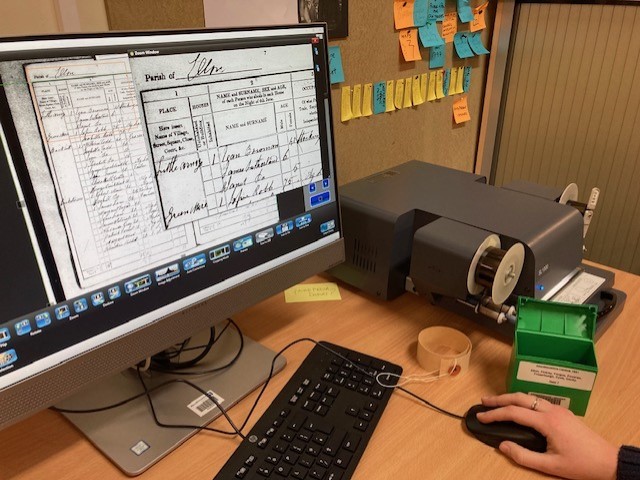
We have microfilm copies of all local census returns between 1841 and 1901 in the Local Studies Centre and local census records in selected libraries.
Find out where they are available at OPRs and census records on microfilm (PDF)
If you wish to view 1911 and 1921 you will need to use ScotlandsPeople.
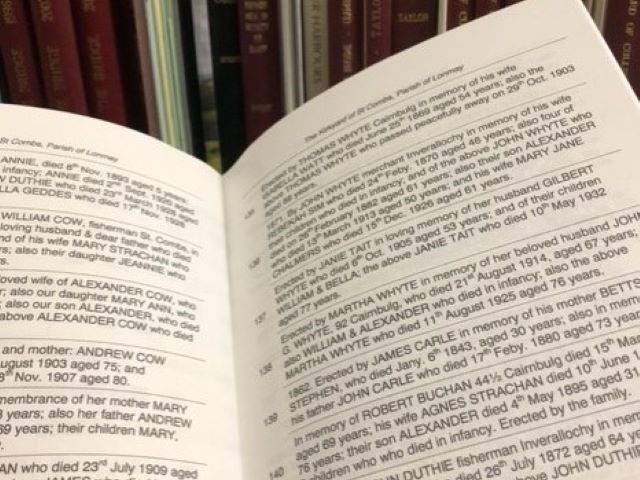
Monumental inscriptions are engravings on gravestones or other grave markers/memorials to the dead.
We have a collection of monumental inscriptions booklets covering Aberdeenshire, Banffshire and Kincardineshire.
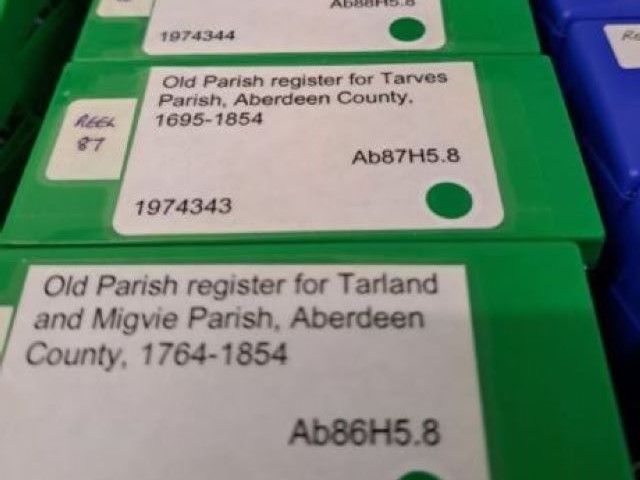
Old Parish Registers cover the records of births and baptisms, banns and marriages and deaths and burials kept by Church of Scotland parishes before the introduction of civil registration in 1855.
We have microfilm copies in the Local Studies Centre and local OPRs in selected libraries.
Find out where they are available at OPRs and census records on microfilm (PDF)
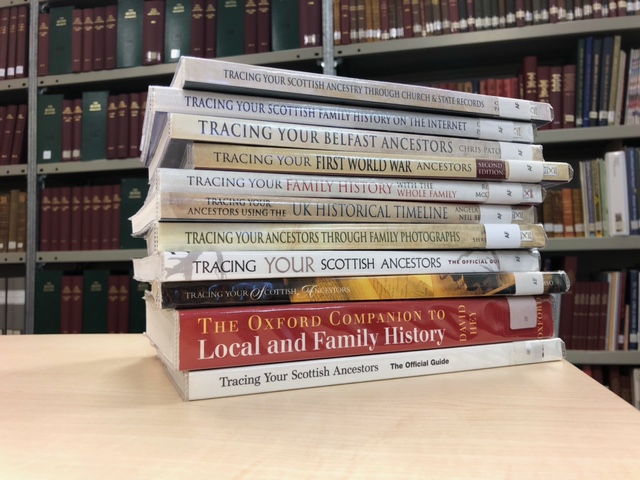
Local Studies books, such as Statistical Accounts, etc are available in each of the libraries and are useful for giving background information about the area where your ancestors lived.
Books about family history are available for borrowing from our libraries. You can reserve them through our online catalogue.

Newspapers are useful for family notices, obituaries etc. We have an extensive archive of local newspapers published in microfilm and bound format.
British Newspaper Archive is available online in all libraries.

Maps are useful for locating the residence of ancestors. There is an extensive collection of local maps located at Local Studies - (6 inch and 25 inch to the mile) of Ordnance Survey and other maps from the late 19th century onwards including a set of 1st (circa 1870s) and 2nd (circa 1902) edition Ordnance Survey maps.
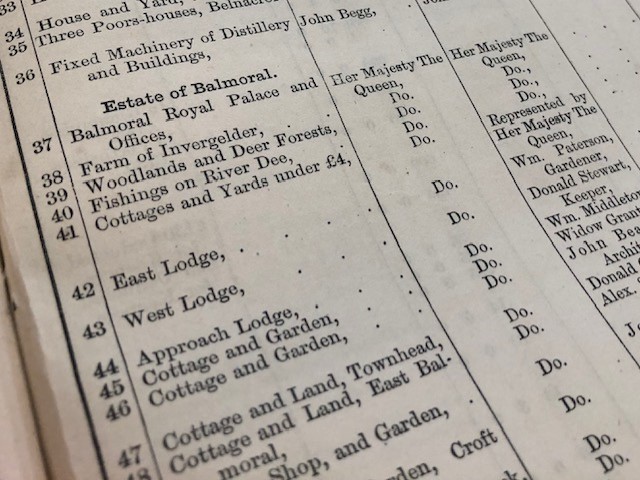
In 1855 Scotland introduced annual rolls for the tax on property in every burgh and county. Valuations rolls provide the names of proprietors, tenants and occupiers for properties.
Our local valuation rolls date from 1865 up until 1989. And coverage for the area varies.
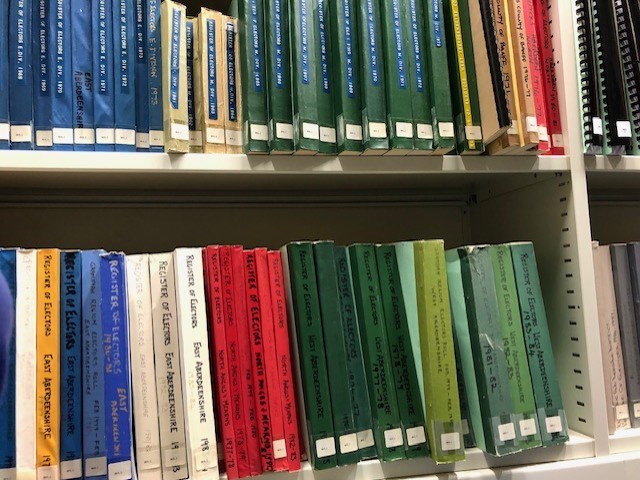
A collection of printed registers for the local area are available in the Local Studies Centre from the mid 1900s for historical research purposes.
A useful way to find out names of people (who were eligible to vote) living at an address in a specific year.